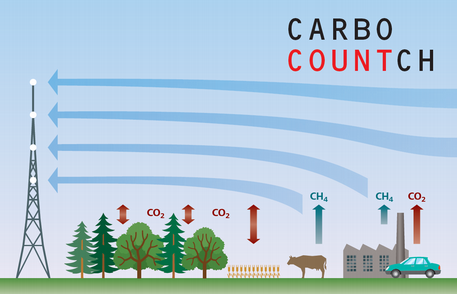Research Projects
C2SM's key research activities are organised around four major themes. This concept is built on the premise that the optimal way to bring together its members is to work jointly on common objectives and to share resources.
C2SM provides the expertise, know-how, and infrastructure to enable and enhance the members' research portfolios and to foster synergies between the members, building upon the respective strengths of the five member institutions.

A fundamental challenge limiting our understanding of the Earth system and our predictive skills in weather forecast and climate projections is the wide range of spatial and temporal scales over which processes in the climate system operates. Processes at small scales, such as convection, are not yet adequately accounted for in most models. This is partly due to major computational impediments to adopting rapid development and deployment cycles for Earth system models: adaptation of large legacy code bases on rapid and disruptive changes of HPC hardware architectures, I/O demand growing with computational capability, but only slow progress on I/O hardware for bandwidth, latency, and capacity; ensuring robustness and reproducibility for complex simulation workflows. The objective of this theme is to address these impediments by establishing a development environment for ultra-high resolution weather and climate modelling at the Zurich hub.
Research projects

Very high resolution modelling over large domains (continents/ocean basins to global), allowing the explicit consideration of across-scale interactions is critical for the accurate modelling and prediction of, e.g., extreme events, but is also fundamental to some of the key challenges in climate change research, such as better constraining the Equilibrium Climate Sensitivity (ECS) and the projected global warming. We plan to continue pushing the current models to higher resolution and improving process representation to better bridge the spectrum of scales fully considering the interactions between atmospheric dynamics and the other components of the Earth Ssystems, e.g., land surface, ocean, and atmospheric composition.
Research projects
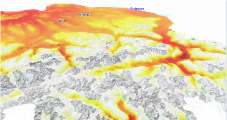
The provision of local-to-regional scale climate scenarios for Switzerland has become an indispensable basis for decision making in the face of climate change and climate adaptation. With the Swiss national adaptation plan requiring a new report by 2025, external page MeteoSwiss and ETH Zurich have kicked off the "Klima CH2025" project in March 2023. Within Klima CH2025, climate information for Switzerland is being prepared covering the past to present to the future in a seamless fashion.
C2SM is centrally involved in this project: it acts as the main climate modelling and data platform, supporting the project by providing and quality-controlling the climate simulation data used, by carrying out technical evaluation of data and individual climate simulations to be added to the data ensemble. By employing one of two coordinators of the project, one at ETH and one at MeteoSwiss, C2SM connects the scientific expertise of ETH with MeteoSwiss' regarding operational service, stakeholder engagement, and communication aspects. This joint setup enables C2SM to also bring in better the expertise of the communities working on impact science. Benefitting from the developments in C2SM's area of high performance computing, in particular the outcomes of the EXLAIM project and the resulting further developments of the external page ICON weather and climate model, C2SM is going to contribute high-resolution ICON simulations to the Klima CH2025 project, which will provide more detailed and accurate climate projections for the topographical challenging domain of Switzerland.
Website
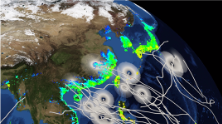
Changes in weather and climate influence a large number of scientifically and societally relevant topics, such as ecosystem services, water resources, food production, air quality, energy provision, impact research, etc., as demonstrated in previous projects among C2SM members. These topics are addressed by diverse communities using specific modeling tools, which are typically either only available in highly specified branches of Earth System models or even applied offline (sequentially) using the output of such amodel. C2SM aims to refine and couple the theme specific modules into the main ESM developed under Themes 1) and 2) in a modular fashion, i.e., optionally allowing for increased complexity, e.g., in the areas of land-atmosphere coupling or atmospheric composition in order to fulfil the requirements of the different disciplines within the C2SM community in one model. For the offline tools, a paradigm shift is needed towards a parallel, coupled application in order to have full access to the meteorological fields at each time step and to allow for feedbacks, e.g., between meteorology, atmospheric composition, and land surface processes. With the ongoing transition of the main model platform to ICON, we seek to better integrate domain-specific tools in an attempt to address these topics in a more integrative and consistent manner.
Past Projects
High-Performance Computing (2010-2021)
C2SM has traditionally been engaged in adapting regional climate and weather models for the next generations high-performance computers.
- external page Enabling the ICON model on heterogeneous architectures (PASC ENIA)C (2017-2021)
- external page Portability And Scalability of COSMO on Heterogeneous Architectures (PASC PASCHA) (2017-2020)
- external page Convection-resolving climate modeling on future supercomputing platforms crCLIM (2015-2018)
- external page High-Level Abstractions for Weather and climate Models (PASC CLAW) (2015-2016)
- external page PASC GridTools (2013-2016)
- HP2C COSMO CCLM (2012-2013)
- HP2C COCoNet (2013)
- HP2C OPCODE (2011-2013)
Towards high-resolution resolution weather and climate simulations (2013-2020)
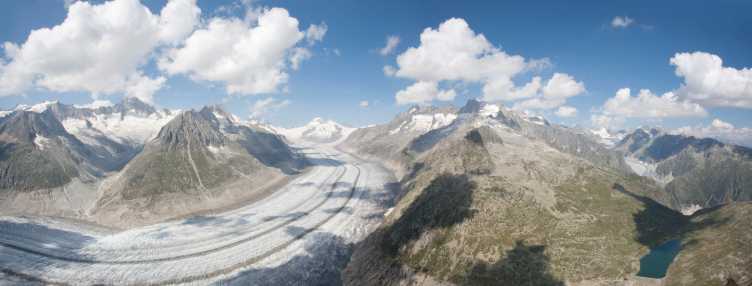
C2SM has a long tradition in enabling and collaborating to refine climate and weather model resolution to better reproduce small-scale phenomena. Projects have traditionally been collaborations between ETH Zurich, C2SM, MeteoSwiss, and CSCS.
Projects
- external page Convection-resolving climate modeling on future supercomputing platforms (2015-2018)
- Towards 1-Kilometer Resolution Weather and Climate Simulations (2013-2015)
Modeling the water cycle in a changing climate - CHIRP2
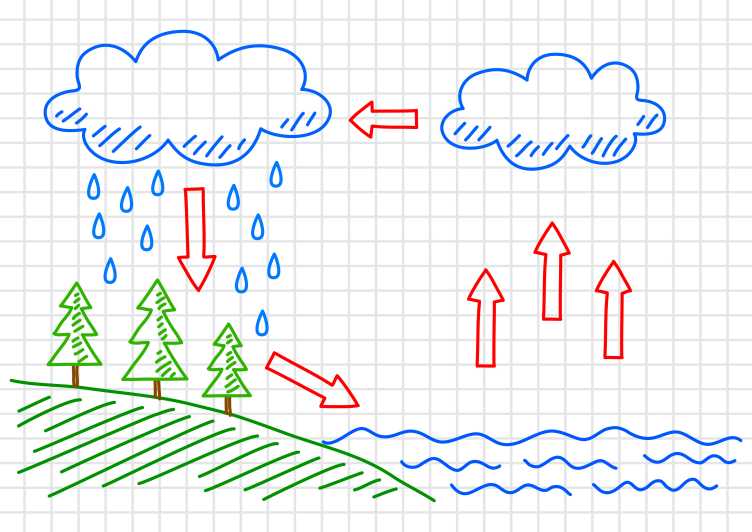
C2SM brings together seevral research groups from ETH and MeteoSwiss to improve our understanding of the water cycle in a changing climate through the ETH-funded CHIRP2 project.
Read more
Multi-scale interactions within the climate system – CHIRP1 (2008-2011)
The goal of the ETH-funded CHIRP1 project was to investigate the multi-scale interactions in the climate system.
Read more

